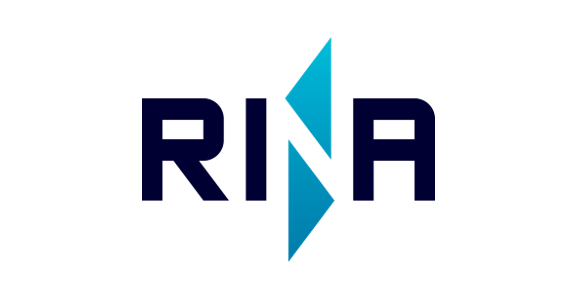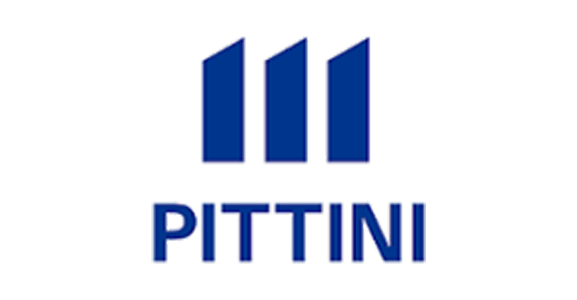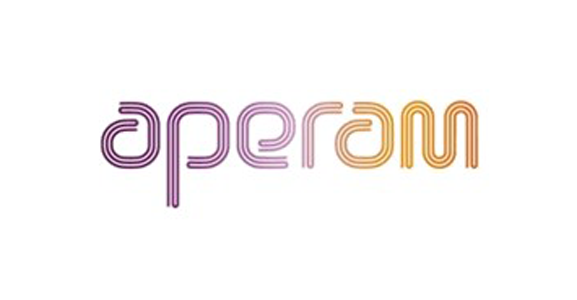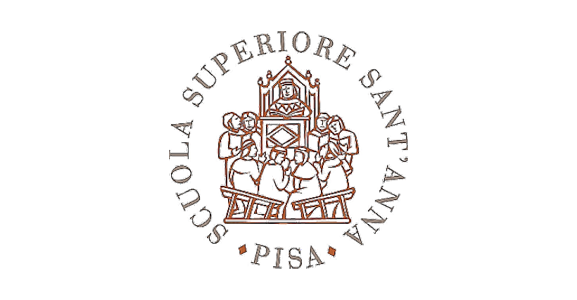The consortium is international (3 nations: Italy, Spain and Belgium are represented) and includes 2 Research Centres (SSSA and CSM which is also the coordinator), 2 Steel Industries (FENO and APERAM) and 1 University for social studies (DEUSTO). The consortium has expertise in AI and ML (hardware and software), sensors, software development and steelmaking processes. All of them participated to ended or running EU funded projects
Deusto
The University of Deusto is a Spanish private university owned by the Society of Jesus, with campuses in Bilbao and San Sebastián, and the Deusto Business School branch in Madrid. The University of Deusto is the oldest private university in Spain. The university is headed by the love of wisdom and the desire to learn and inquire rigorously scientific methodology and the structure of reality. Therefore it seeks excellence in research and in teaching. Simultaneously seeks the formation of free competent professionals, those endowed with knowledge, values and skills that enable them to engage in individuals, responsible citizens and promotion of knowledge and the transformation of society.
The roles of Deusto in the SILENCE project are the following ones: on the one side, Deusto is the main responsible for defining the KPIs needed for measuring the improvement generated by the project. Once measured (at the beginning and at the end of the project), it is as well the main responsible of extracting the indicators from the gathered data, so that it is possible to quantify the aforementioned improvement. Finally, Deusto has as a prevalent role in the definitions of the trainings to be done, in order to implement the improvement actions detected during the project (that can be solved via training).
RINA CONSULTING - CENTRO SVILUPPO MATERIALI SPA
CSM is a fully private innovation center, founded in 1963 by Italy’s major steel industry, with extensive experiences for the development and application of innovative processes and materials. Today CSM is part of RINA Group. CSM is a leading center for applied research activities mainly related to the modelling and design of materials and products, development of innovative pilot plants and reduction of environmental impact. With a staff of about 300 researchers, CSM ranks among Europe’s top Materials Research Centers. The industrial sectors of main interest to the Company are: Energy and environment, Iron and steel, Oil and gas, Aerospace and defense, Mechanics and transport.
RINA serves as the coordinator of the SILENCE project, overseeing the overall execution and ensuring seamless collaboration among all consortium partners. In this role, RINA is committed to facilitating effective project management and fostering synergies that drive the success of the initiative. In addition to its coordination responsibilities, RINA leads the project's communication and dissemination activities. By designing and implementing a comprehensive outreach strategy, RINA ensures that the results and innovations emerging from SILENCE are effectively communicated to a broad spectrum of stakeholders, including industry representatives, research communities, and policy makers. Leveraging its solid expertise in the development of machine learning models, RINA also plays a pivotal technical role within the project. It leads the activities focused on the analysis of acoustic emission data and its correlation with process performance, contributing directly to the design of the project's Decision Support System. This system enables real-time monitoring of acoustic signals and delivers prompt, data-driven recommendations to support effective mitigation actions.
Ferriere Nord S.p.A.
The Pittini Group, headquartered in Osoppo, Udine province, is a leading company in the production of
long steels for the construction and mechanical industry.
Ferriere Nord S.p.A. (FENO), founded in the Sixties, is the largest company in the group, with
manufacturing facilities located in Osoppo (Udine) and Nave (Brescia). The whole production site
includes an electric steel mill, a rolling mill for the production of steel bars and coils for
reinforced concrete, one rolling plant for wire rod besides several systems for meshes and lattice
girders. Steel products produced by the Ferriere Nord plants are renowned at the international level for
high safety and ductility.
The Pittini Group, headquartered in Osoppo (Udine), is a steel group with a strong international focus that bases its production processes on electric arc furnaces. With approximately 3 million tons of steel produced, it is the leading Italian producer of long steels for construction and mechanics, accounting for 4% of the entire national production and 24% of the production of long steels. The Group consists of 16 companies with 29 production and distribution facilities located in Italy and Central Europe. Ferriere Nord S.p.A. is the main company of the group, one of the largest private steel companies in Italy in the construction steel sector, and is based at the Osoppo (Udine) headquarters. Although there are no high-density residential settlements in the area where the plant is located, with only few isolated houses situated at the boundaries of the industrial area, the presence of significant noise sources (EAF and other production plants, evaporative cooling towers, scrap yards, and auxiliaries plants) has led the company to identify ways to mitigate the noise impact to the external areas. Over the years, various mitigation systems have been implemented towards the inhabited areas on the south and west sides of the plant, including barriers made of sound-absorbing panels and morphological barriers in vegetated soil. Additionally, starting in 2015, a multi-year plan of significant acoustic mitigation interventions, worth approximately 10 million euros, was implemented to further improve the acoustic environment. The activities were completed in 2022, and it was verified that the noise impact reduction objectives were achieved. With a view to further improvement, Ferriere Nord S.p.A. has decided to engage in the "SILENCE" project, aimed at further developing the monitoring of noise sources and the impact on the outside, through the installation of 4 new sound level meters. These will allow, thanks to the support and know how of project partners, to adequately characterize the main sources, develop more effective systems for signaling any anomalies through advanced AI models, and enable the identification of rapid corrective actions in case of anomalies.
Aperam S.A.
Aperam SA (Aperam) is a steel manufacturing company. It carries out the production of stainless and specialty steel products. Aperam offers high value-added specialty products, including grain oriented and non-grain oriented electrical steels and nickel alloys. It also offers tubes, discs, flat bars, coils, and sheets. The company serves oil and gas, aerospace, catering, household appliances, industrial processes, electronics, medicine, automotive, construction and electrical engineering markets. It operates through a network of distribution centers, transformation facilities, R&D centers, manufacturing facilities, sales offices and Steel Service Centers. The company operates six manufacturing facilities, 15 steel service centers, five transformation facilities and 15 sales offices. The company has operations in Europe, Americas, Middle East and Africa, and Asia-Pacific. Aperam is headquartered in Luxembourg City, Luxembourg.
Aperam is a global player in stainless, electrical and speciality steel and recycling, with customers over 40 countries. It has a flat Stainless and Electrical steel capacity of 2.5 million tonnes in Brazil and Europe and is a leader in Alloys & high value specialty. One of its main production plants is located in Belgium (Châtelet). With an electric arc furnace and a powerful hot rolling mill located very close to neighbours, the noisy sources remain an issue. Plant Aperam has committed to the ‘Silence’ project because we want to improve the way we manage these noisy sources and, therefore, we see a great interest in being able to measure the level of noise emitted by the site in real time, with the possibility to reduce the impact of the significant sources regarding the neighborhood.. We therefore began by gathering all the information (recordings, technical data, complaints from local residents, etc.) in order to establish a number of correlations. We then planned to buy 7 additional sound level meters, in addition to the two existing ones near the locations we consider to be the noisiest. We are therefore in the process of installing all the essential equipment (sound level meters - masts for some of them - dedicated server - installation work). As soon as this is operational, in collaboration with SSSA and Deusto, we will provide the data needed to develop the system. Training will be given to all the workers concerned so that this new tool can be quickly transferred to operational staff (current 2026).
Scuola Superiore Sant'Anna
Sant’Anna School of Advanced Studies is a public university institute - with special autonomy - working in the field of applied sciences: Economics and Management, Law, Political Sciences, Agricultural Sciences and Plant Biotechnology, Medicine, and Industrial and Information Engineering. It is a residential university and offers undergraduate and postgraduate courses (Master of Science, PhD Courses and Seasonal Schools). Established in 1987 is now affirmed as a dynamic and strongly innovative institution dedicated to foster and enhance talent and merit. The School promotes the internationalization of didactics and research with innovative paths in the fields of university education, scientific research and advanced training.
Within the project, SSSA leverages its extensive expertise in data analysis and the modeling of industrial processes using advanced AI techniques. Specifically, SSSA will contribute to the collection and organization of data, as well as the definition of key performance indicators (KPIs) that will be used to assess the impact of the project’s outcomes. These KPIs include the statistical analysis of how acoustic emissions are perceived in the vicinity of steel plants. Complementing the analysis, data from news and social media will be elaborated, as well as data from official data sources (e.g., Istat for Italy and Statbel for Belgium) will be analysed to describe the area in which the system SILENCE will be adopted. SSSA is responsible for the main tasks related to the development of the software platform, data analysis and preprocessing, and the creation of AI models that correlate acoustic emissions with the operations and setup of various processes within the plant. Finally, these tools will be integrated into the development of a Decision Support System, enabling real-time monitoring of acoustic emissions and providing immediate recommendations for their mitigation.





